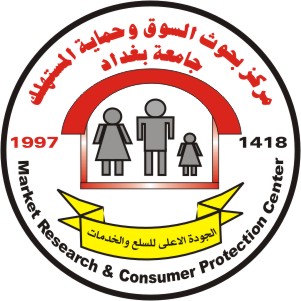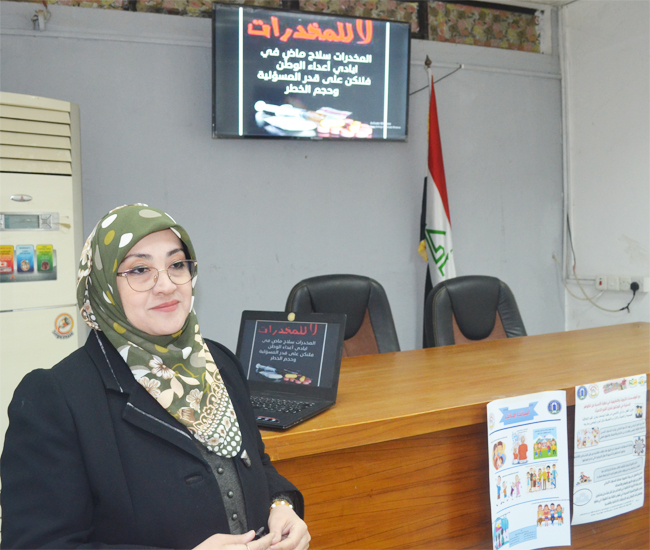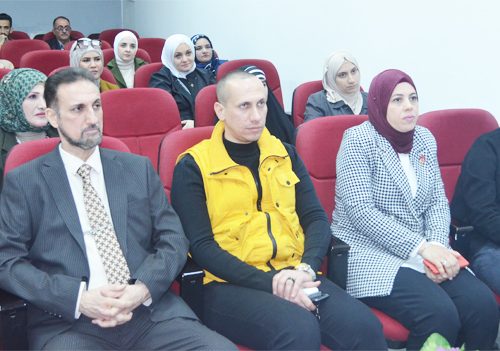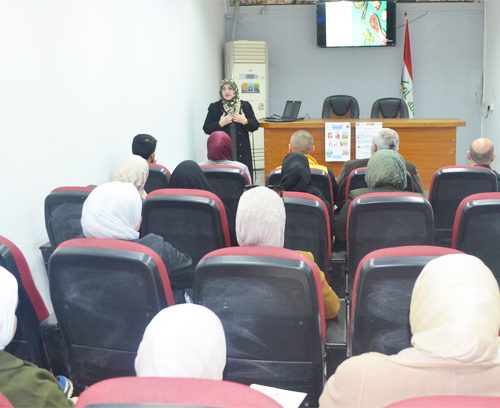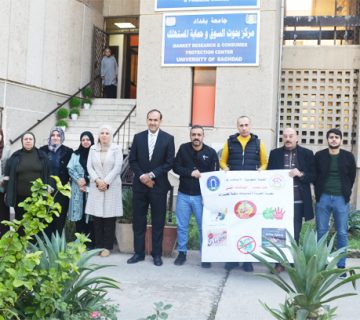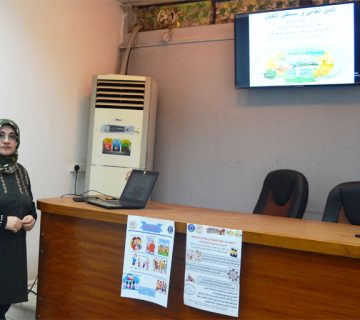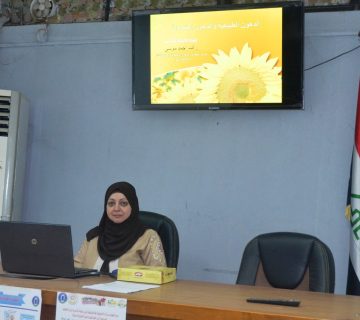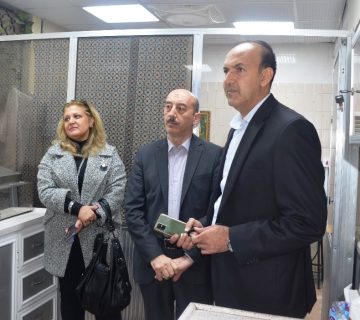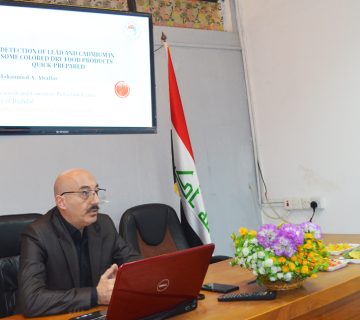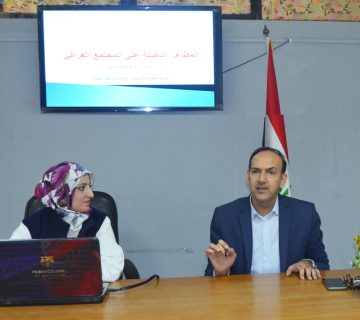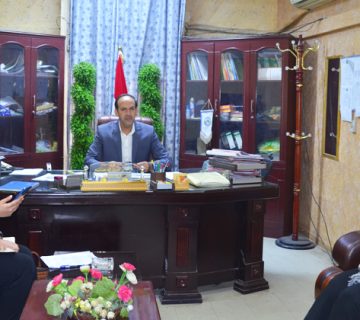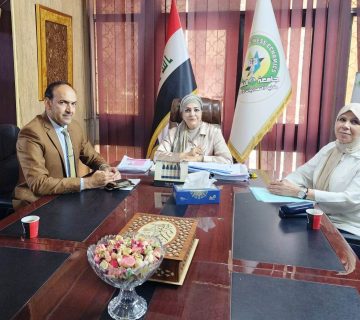Under the auspices of the Director of the Center for Market Research and Consumer Protection, Assistant Professor Dr. Mahmoud Abdullah Jassim, and a reference to the book from the Department of Scientific Affairs of the Presidency of Baghdad University on the topic (Iraqi Anti-Drug Week), the Center for Market Research and Consumer Protection Protection (Drug Plants Prevention and Outreach) by teacher Dr. Ibtisam Farid Ali at the Department of Commodity Evaluation and Service Performance at 12 p.m. on December 2, 2024, on the Centre’s auditorium.
The workshop aimed to: familiarize attendees with the types of plants that can be used as anaesthetic plants, how to deal with them, preventing them, the reasons for their spread, the role of the family and society in fighting them and reducing their damage.
The workshop included: highlighting some types of narcotic plants and the most important… And ways to prevent its risks. The importance of community health awareness in this regard because it has a significant impact on the life of the individual and society. and to protect consumers from potential risks.
The most important recommendations raised and discussed in the workshop::
Tightening penalties: imposing strict laws punishing the cultivation, manufacture or circulation of narcotic plants and their compounds.
Border control: Strengthening border control to reduce smuggling of seeds or narcotic substances.
Substance regulation: The inclusion of narcotic plants and their compounds in the schedules of internationally prohibited substances, while adhering to drug control conventions.
Community awareness: in the area of education through the inclusion of awareness-raising programmes in the curriculum on drug damage to individuals and communities.
Agricultural training: Training courses for farmers to raise their awareness of the risk of growing narcotic plants.
Media programmes: launch awareness-raising campaigns through the media to warn young people and rural communities about the dangers of drugs.
Periodic inspection: inspection campaigns in agricultural areas to detect illegal cultivation of narcotic plants.
Transform agriculture: Provide economic alternatives to farmers by encouraging profitable and legal crop cultivation.
Afforestation: Replacing the cultivation of narcotic plants with permanent trees or crops that contribute to economic development.
Economic empowerment: Provide financial support or loans to farmers who abandon the cultivation of narcotic plants.
Rural development: improving living conditions in rural areas to reduce dependence on illegal crop cultivation.
Drug development: legally exploiting certain narcotic plants to extract compounds used in medicines.
Detection techniques: Develop modern techniques to monitor and control the cultivation of narcotic plants accurately and rapidly.

